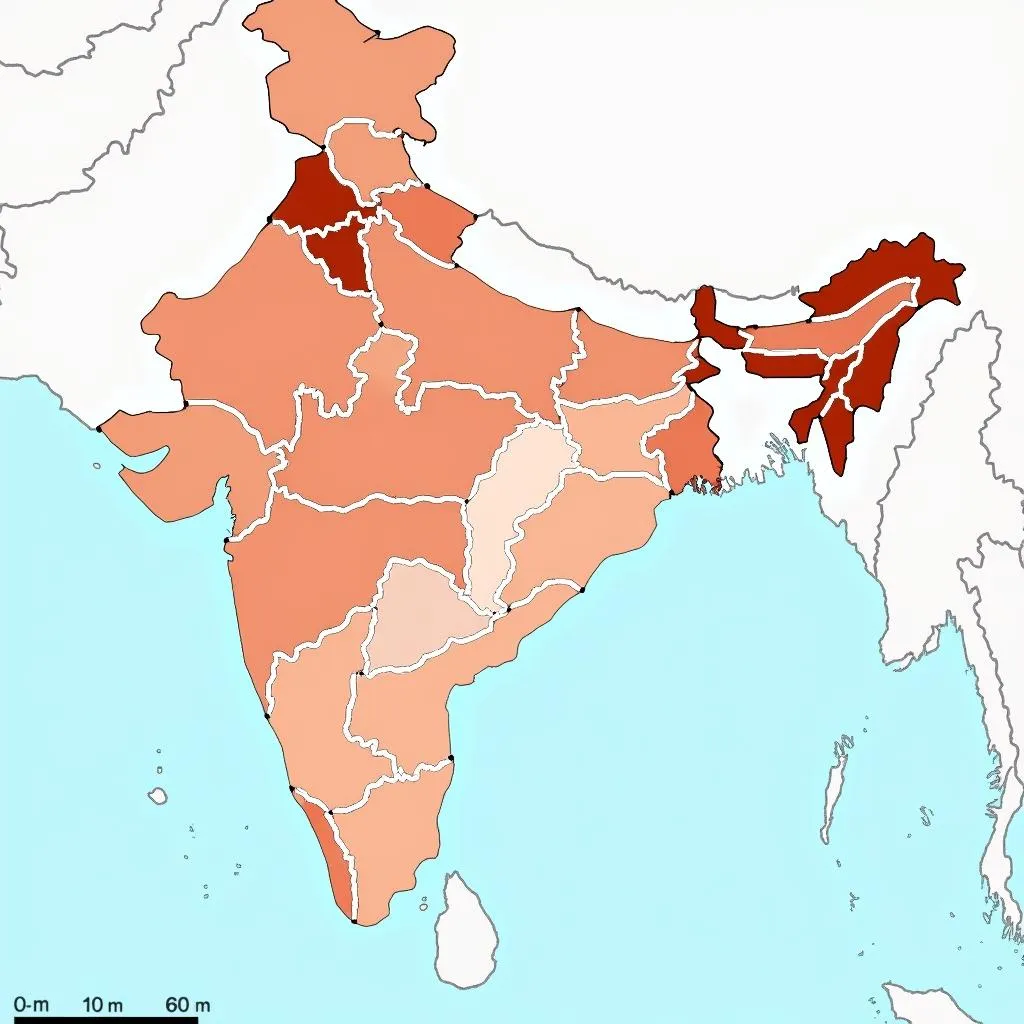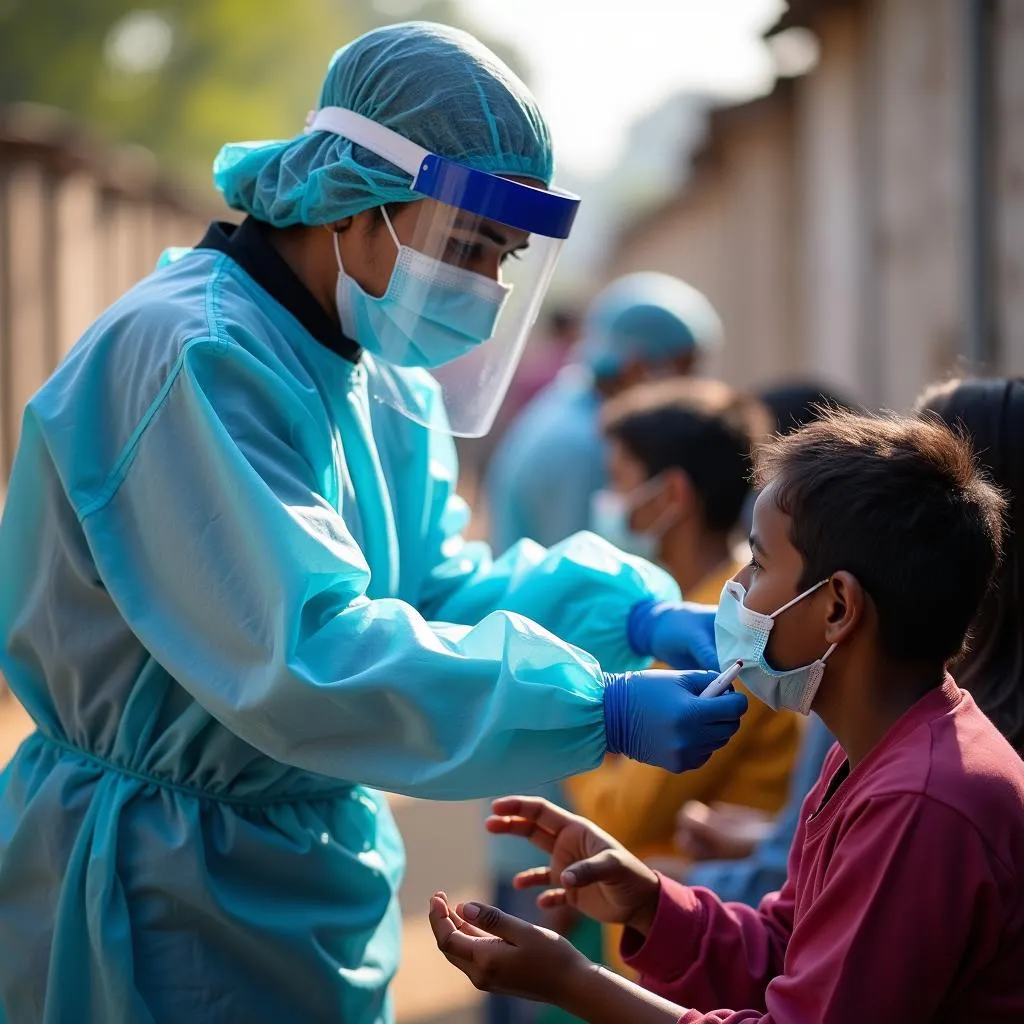The South African Variant in India: A Comprehensive Look
The emergence of the South African variant, also known as the Beta variant, in India in late 2020 raised concerns due to its potential for increased transmissibility and potential impact on vaccine efficacy. This article delves into the details surrounding the South African Variant In India, examining its characteristics, spread, and implications for public health.
Understanding the South African Variant
The South African variant, scientifically designated as B.1.351, carries several mutations in its spike protein, the part of the virus that attaches to human cells. These mutations include N501Y, K417N, and E484K, which are believed to enhance the virus’s ability to bind to the ACE2 receptors on human cells, potentially increasing its transmissibility.
 South African Variant Mutations
South African Variant Mutations
Spread and Impact in India
The South African variant was first detected in India in December 2020. While initially detected in travelers arriving from South Africa, it soon began to spread within the community. The variant’s emergence coincided with a surge in COVID-19 cases in India, although its precise role in driving the surge is complex and multifactorial.
 Spread of the South African Variant in India
Spread of the South African Variant in India
Concerns and Implications
One of the primary concerns regarding the South African variant was its potential to reduce the effectiveness of some COVID-19 vaccines. Early studies suggested that certain vaccines might offer reduced protection against infection with this variant, although they still provided significant protection against severe disease, hospitalization, and death.
“The emergence of variants like the South African variant underscores the importance of ongoing genomic surveillance to track viral evolution and adapt public health measures accordingly,” notes Dr. Anjali Gupta, a virologist based in New Delhi.
Public Health Response
Indian authorities implemented a multifaceted public health response to address the spread of the South African variant, including:
- Enhanced genomic surveillance: Increased sequencing of virus samples to monitor the prevalence and spread of the variant.
- Stricter travel restrictions: Implementing and tightening travel restrictions from countries where the variant was prevalent.
- Reinforced public health measures: Emphasizing mask-wearing, social distancing, and hand hygiene.
- Accelerated vaccination drive: Scaling up vaccination efforts to reach a larger portion of the population.
 COVID-19 Testing in India
COVID-19 Testing in India
Conclusion
The South African variant’s emergence in India highlights the challenges posed by the ever-evolving nature of the COVID-19 virus. While the variant raised concerns regarding transmissibility and vaccine efficacy, the robust public health response, combined with the continued development of vaccines and treatments, remains crucial in mitigating the impact of this and future variants. As we move forward, vigilance, adaptation, and global cooperation are essential in navigating the ongoing pandemic and protecting public health.


